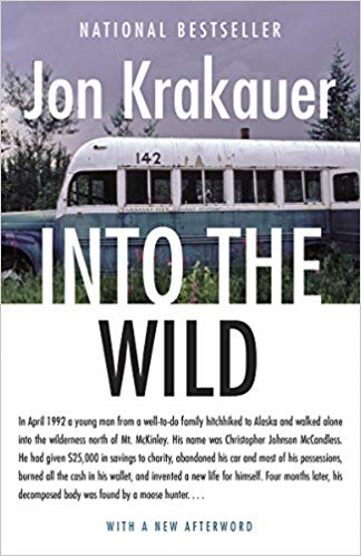 A fascinating, eloquent and beautiful story, this non-fiction written by Jon Krakauer in 1996 unveils the story of young Chris McCandless as he abandons everything he possessed to embrace a life of independence in the relentless wilderness of Alaska, and after approximately 113 days, his own death.
A fascinating, eloquent and beautiful story, this non-fiction written by Jon Krakauer in 1996 unveils the story of young Chris McCandless as he abandons everything he possessed to embrace a life of independence in the relentless wilderness of Alaska, and after approximately 113 days, his own death.
What sort of motivation can drive McCandless, an impressive and well-off college graduate, to venture alone into the wilds with such determination? Was it an escape, a quest, a search, or something more? What do you think may drive you to make the same decision one day?
Krakauer guessed that McCandless might be a ‘pilgrim’, referring to someone who journeys to seek spiritual or philosophical truths. Would you agree? And what was McCandless trying to explore or understand about ‘the inner country of his soul’? McCandless left behind everything, including his name. Why you think he named himself Alexander Supertramp? What does this symbolize and how does it hint on McCandless’s longing for complete freedom? How does McCandless’s relationship with his father play a role in this desire?
McCandless possessed a strong yearning to commune with nature in seeking a meaningful and authentic life. How did this spiritual hunger relate to the physical hunger he experienced on his fatal adventure? What does this tell you about McCandless’s mind and mentality?
In the book, Krakauer found resemblance between McCandless and Stephen Dedalus from James Joyce's ‘Portrait of an Artist as a Young Man’. What are the similarities and differences between these two ‘alone and young and willful’ characters? Dedalus had the happy ending that McCandless was not granted, what does this ironic difference in fate indicate and what effect does it have on the readers?

